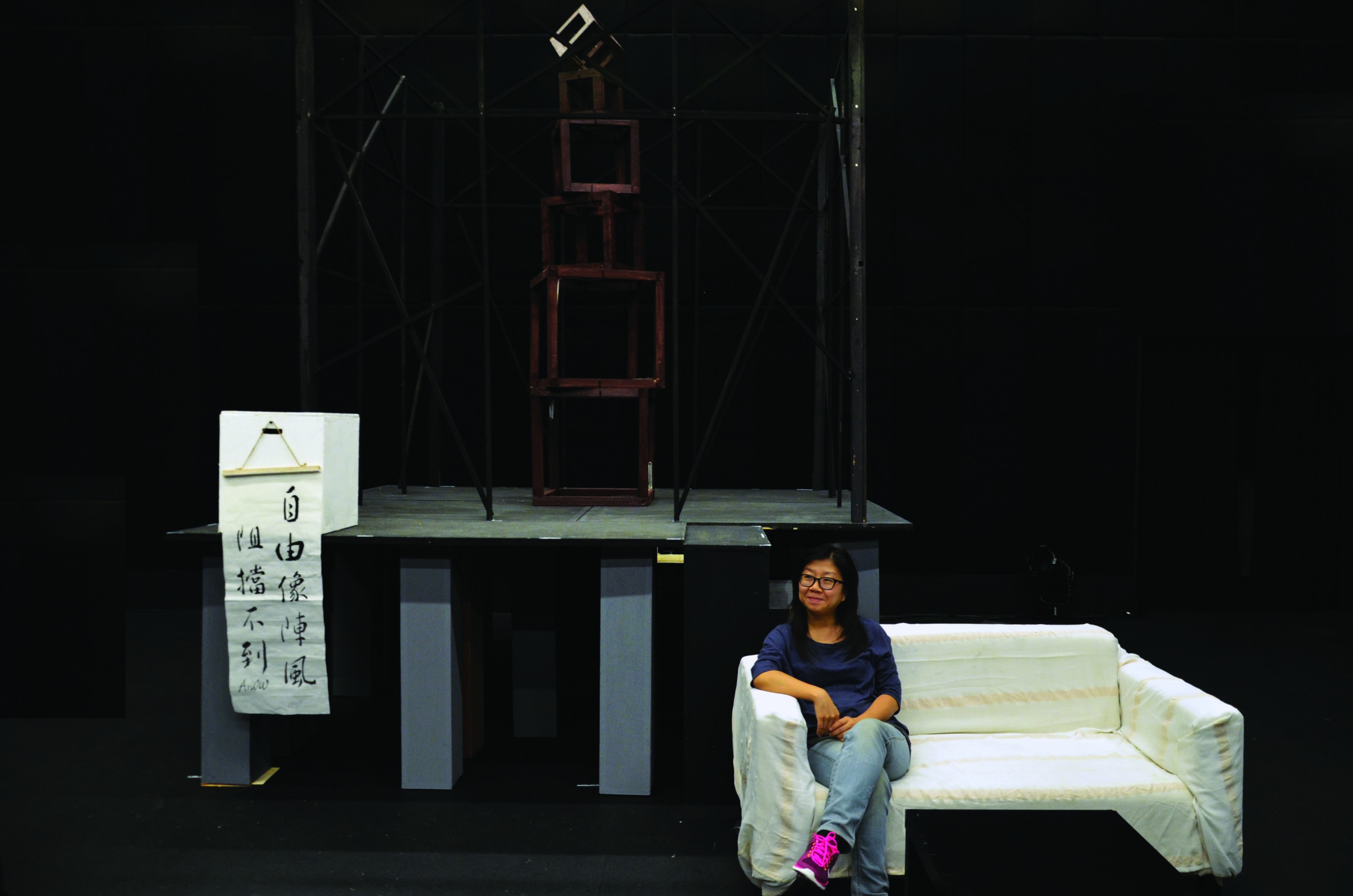Candace Chong Mui-ngam captures the social and political issues facing Hong Kong for the stage
By Sharon Lee
As the applause finally subsides in Kwai Ching’s Black Box Theatre, a dozen audience members soon surround a casually dressed woman in her thirties. She graciously accepts the compliments and answers the questions with smiles, standing next to a banner that reads, “Freedom is like wind, nothing can block it”. The banner is a prop in this student production of Candace Chong Mui-ngam’s acclaimed 2012 play, The Wild Boar, a work about media censorship.
Chong, 36, is one of the city’s most promising playwrights and a four time winner of the Best Script of the Hong Kong Drama Awards. Her winning scripts, Alive in the Mortuary (2003), Shall We Go to Mars? (2005), The French Kiss (2006), Murder in San José (2010), have been staged over and over again.

When extra performances for The Professor, her new play to mark the 50th anniversary of the Chinese University of Hong Kong, were announced, tickets for staff and the general public sold out within a day.
Ticket sales for Chong’s plays are no indication of their themes. Unlike some other popular dramas, her work addresses serious issues that might be expected to bore mass audiences.
For instance, The French Kiss (2006), examines religion, the law and moral judgement. The whole play takes place in just one setting and is basically a conversation between two people. However, it won the Best Script prize at the Hong Kong Drama Awards, has had three re-runs, and even been translated for performance in a Korean theatre.
While most of her previous works focus more on individuals struggling with human nature, her 2012 play The Wild Boar looks at society from a more macroscopic level by taking on the subject of media censorship.
In 2010, Chong read a newspaper report about a small drama troupe that had received threatening phone calls about a drama they were going to stage on the June 4 crackdown. Chong was extremely troubled that the reach of censorship could extend to theatre, as she believed drama was of limited influence in Hong Kong.
Nevertheless, she was glad that media censorship was not so prevalent that she was unable to read the news of the incident. The sense that something important was being threatened and the need to protect it drove her to write The Wild Boar.







































